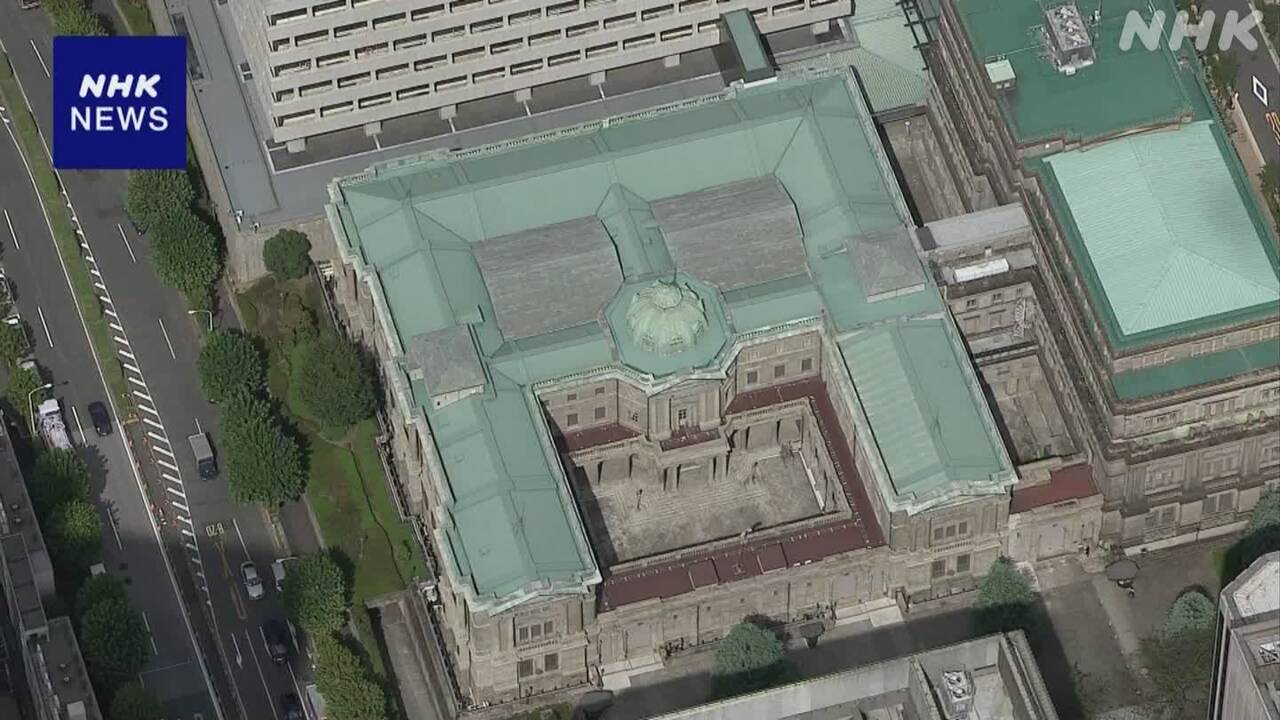The Bank of Japan will hold a monetary policy meeting from the 18th.
Within the Bank of Japan, there is a growing view that the spring labor wage increase rate has reached the highest level in 33 years, and that the environment is ripe for a change in large-scale monetary easing measures, and the Bank will consider lifting the negative interest rate policy at its meeting.
As the consumer price index continues to rise, the Bank of Japan has cited the realization of a virtuous cycle of wages and prices as a condition for reversing the current large-scale monetary easing measures, and has indicated that it will focus on the trends in this year's spring labor union. I've shown it.
Under these circumstances, the average wage increase rate was 5.28%, the highest level in 33 years, according to a data compiled by the Rengo published last week, and some within the Bank of Japan believe that the number is higher than expected and that the environment is ripe for a change in policy. It's getting stronger.
On the 18th, the first day of the Monetary Policy Meeting, nine members of the policy committee will exchange opinions on the domestic and international economy and the state of wages and prices, based on data from the spring labor union.
The next meeting on the 20th will assess whether the 2% price stability target can be achieved, and will also consider lifting the negative interest rate policy, which has been a pillar of large-scale monetary easing, and raising long-term interest rates in addition to short-term interest rates. We will consider changes to the framework called "yield curve control" to suppress the yield curve.
The focus will be on the Bank of Japan's decision to end negative interest rates and raise interest rates for the first time in 17 years, as it is expected to have an impact on the economy and financial markets.
Price and wage increases at amusement parks
The Bank of Japan aims for an economy where both wages and prices rise.
A company that operates an amusement park in Yamanashi Prefecture has decided to increase the price of "free pass" tickets, which allow unlimited rides on attractions, from 6,800 yen last year to 7,800 yen this year, as utilities costs rise. Free Pass" price has increased from 19,200 yen to 21,300 yen.
Although there are factors such as the introduction of new attractions and recovery from the coronavirus pandemic, the number of visitors has remained stable.
Last year, the company raised the starting salary for university graduates in general positions by about 15,000 yen for its 200 employees, and the hourly wage for part-time workers with more than 100 employees by 50 yen to 100 yen.
This year, we plan to increase wages in accordance with skills and evaluation, and the wage increase rate for all employees is expected to be about 5%.
Fuji-Q Highland President Takeaki Matsumura said, ``We would like to do our best to strengthen our services and safety by increasing wages and improving treatment, so that our customers can take home more pleasant memories.'' .
Weak consumption in shopping districts
The issue is consumption trends.
From October to December last year, the revised value of GDP = Gross Domestic Product showed that the growth rate of "personal consumption" was -0.3%.
Bank of Japan Governor Ueda stated in the Diet this month, ``There are signs of weak movements in food and daily necessities.However, with expectations for future wage increases, the economy is improving moderately.''
In the shopping district of Kita Ward, Tokyo, some people said that rising prices were having an impact on consumption.
At greengrocers stores, the prices of garlic and onions have increased significantly, and at fresh fish stores, prices of ``sawara'', ``yellowtail'', and ``squid'' have nearly doubled over the past five to 10 years.
A man in his 50s who is the manager of a fresh fish store said, ``The economy doesn't seem to be improving, and more people are only buying enough for today's table.I think it will be a while before a wide range of people can feel the wage increase.'' We were talking.
Clothing stores have also raised prices on 50 items, including socks and pajamas, over the past year due to rising prices for cotton and polyester.
A woman in her 60s who works at this store said, ``People used to buy clothes for their friends, but now they only buy clothes for themselves, and I feel like they're buying fewer items at a time.'' .
Shoppers in shopping districts also say things like, ``I try to find cheap items and only buy as much as I need,'' and ``I don't feel that the economy is getting better because the impact of rising prices is greater than the rise in wages.'' We were talking.

